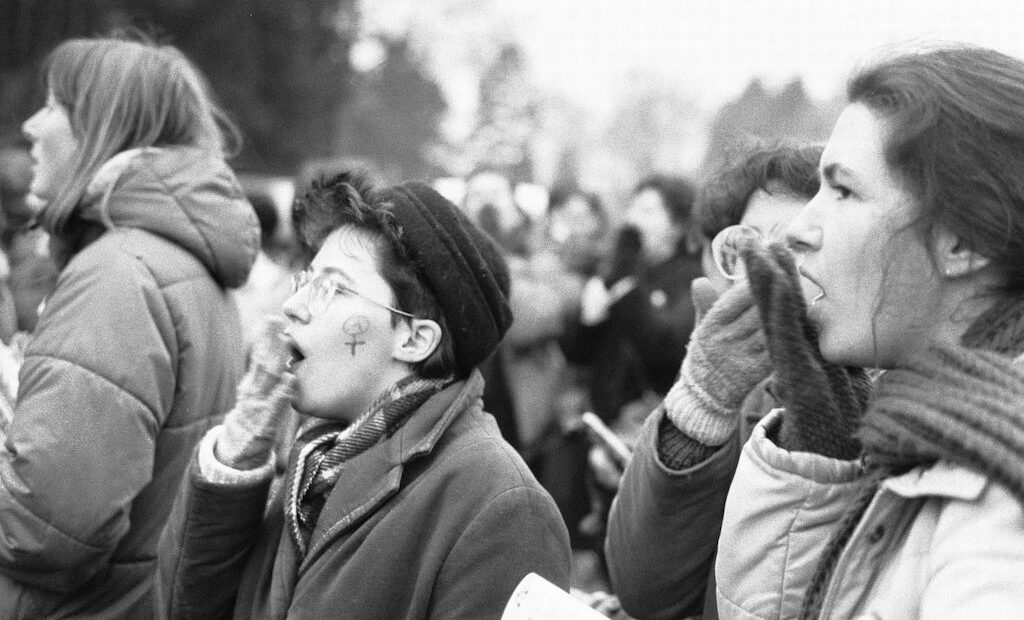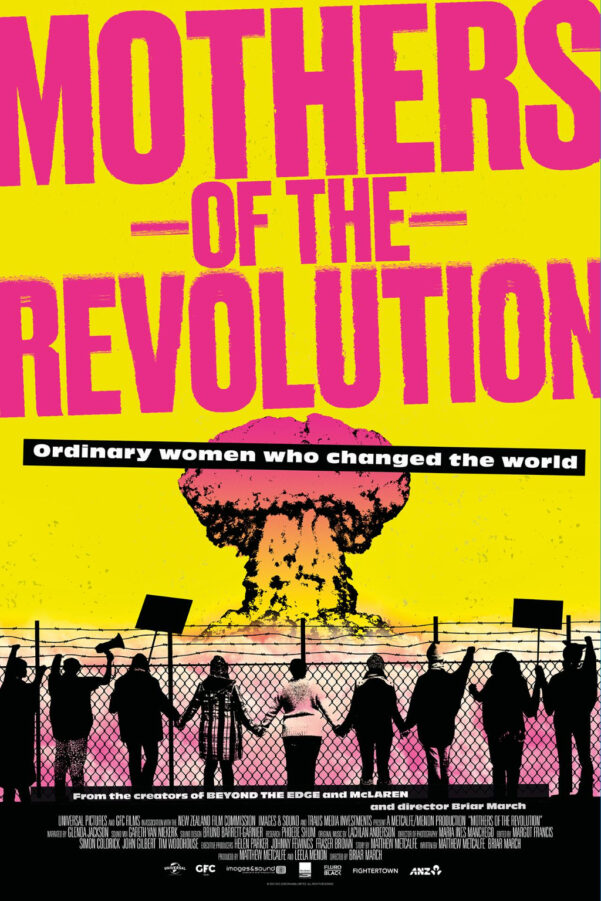Mothers of the Revolution

The heat of the Cold War came not from the missiles, but the tension in the air between Western states and the Soviet Union. For a group of Welsh women, this rising pressure and growing threat to their own families’ safety called for grassroots action, and thus the Women for Life on Earth group was born. Following a march from Cardiff to Greenham Common in Berkshire to protest the placement of nuclear missiles at the RAF base, the Greenham Common Women’s Peace Camp was formed and for 19 long years; through rain and snow, the all-female camp stood strong in protest against the dangers posed to the nation’s children by the presence of world-ending weaponry in the country’s back garden.
Director Briar March’s documentary tells the story of these women, through their eyes and with the use of actors in reenactments of the most significant moments in their campaign. Visually, the documentary is of a very high quality, utilising the bounty of news footage, newspaper cuttings and photographs from the time, and mixing it with a combination of graphics and present-day interviews with some of the leading members of the group. It will also be unsurprising that the subject matter is delightfully gripping, with the documentary taking a firmly grasped firsthand glance into the stories and history that was unravelling.
Steadily building in gravitas and risk alongside its real-life heroines, the film injects a powerful sense of realism into its narrative by taking the audience through the frightfully bold encounters some of the protestors experienced, from tents being set on fire outside the airfield, to the lobbying of politicians in Russia, despite threats from the KGB. The documentary is the perfect depiction of democracy in action and quite an astounding tribute to the women who risked it all in the search for demilitarisation.
The pitfalls lie in the unbalanced nature of the film. Mothers of the Revolution presents itself as a Cold War documentary about the women who changed the course of history through their perseverance and daring actions, but it does so through an activist lens coated in romanticism. At the conclusion, one of the Greenham Women states that it was the protesting that led to the conclusion of the Cold War – and, without a counter argument, the idea is sold without question. Did the Greenham Common Peace Camp lead world leaders to think, “Locals are being a nuisance, let’s end mutually assured destruction”? A majority may argue no, and this needs to be represented in the documentary.
A curious question of morals is also presented to the viewer, with conflicted voices stating that they acted for their children’s safety, but in the process left their children at home. These are of course just morsels of moral food-for-thought that are left behind as the credits role, and in general Mothers of the Revolution is a proud sentimental journey that gives the unsung heroes the neverending respect they deserve.
Guy Lambert
Mothers of the Revolution is available to watch on digital download from 18th October 2021 in the UK.
Read more reviews and interviews from our London Film Festival 2021 coverage here.
For further information about the festival visit the official BFI website here.
Watch the trailer for Mothers of the Revolution here:


























Facebook
Twitter
Instagram
YouTube
RSS